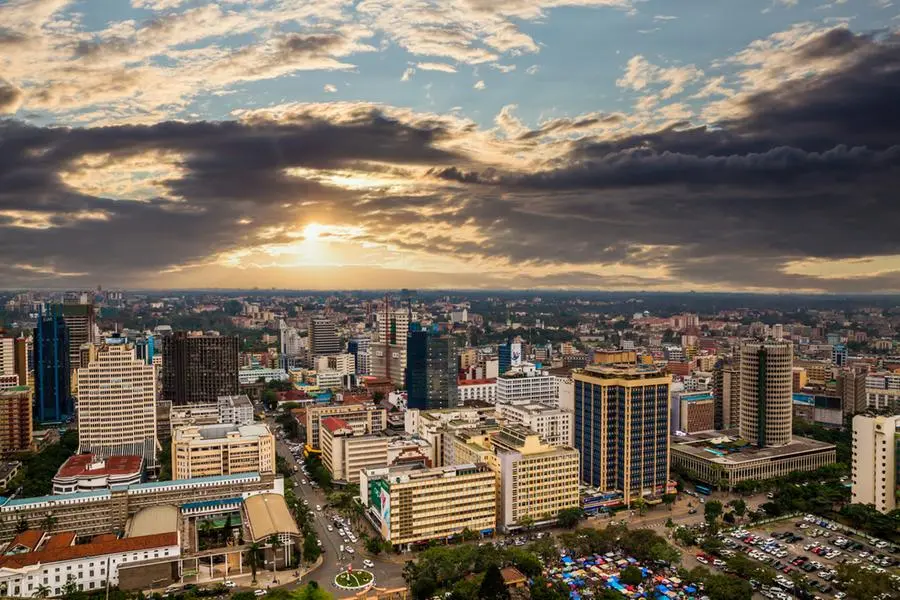PHOTO
Workers at Kenya’s Export Processing Zones (EPZ) are facing job losses due to the Trump tariffs, which potentially override the African Growth and Opportunity Act (Agoa), under which they operate.
Dr Juma Mukhwana, Principal Secretary for the State Department of Industry in the Ministry of Investments, Trade and Industry, conceded that the measures announced by the US leader could have wide-ranging implications for Kenya’s economy.“Agoa has historically allowed duty-free access to 32 sub-Saharan African countries and, for over 6,000 Kenyan goods to the US market. If the tariffs override the Agoa benefits, it could reduce Kenya’s trade advantage. Changes in Agoa’s future, including its potential renewal or cancellation, further complicate the landscape,” he told The EastAfrican.
According to the PS, Kenya’s EPZs employ 75,598 workers. “Export-driven sectors provide thousands of jobs, especially in urban areas and industrial zones. Any contraction due to tariffs could lead to job losses and reduced incomes. Reduced exports can widen the trade deficit. Decreased dollar inflows could exert pressure on the Kenyan shilling.”Kenya will have to re-strategise on how to maintain the apparel market in the US as it re-examines regional trade blocs, including the East African Community, where intra-trade has been low.
A 10 percent import duty from zero percent almost wipes out the industry’s profitability.
Thus, for Africa, 29 countries will face the “baseline” 10 percent tariff, while 22 others will face tariffs up to a whopping 50 percent for almost all their products, excluding a short list of products such as certain critical minerals deemed necessary to the US economy.
Read: Pain of Trump’s tariffs on African economiesThe PS said Trump’s move provides Kenya with a chance to review its industrial performance, including relooking at its used clothing imports from the US, without appearing to be seen as being retaliatory.“Our take is that the 10 percent tariff for Kenya allows us to be competitive especially in the textile sector. Other textile exporting giants such as Bangladesh have been hit with higher tariffs. The only challenge is that it takes time for industry to react to these changes -- three to five years -- by which time other changes may have taken place. These changes also need to allow us to rebook our rules for importing mitumba. Importing mitumba has hampered growth of our local textile industry,” he said.
Read: Kagame: Rwanda will not abandon policy on ‘mitumba’Most African countries have relatively small trade balances with the US but more significant trade relations with the European Union and China.
Kenya exported $1.35 billion in goods to the EU and $228 million to China in 2023, according to UN data. US Treasury Secretary Scott Bessent said on Sunday that more than 50 nations had started negotiations with the US since Trump announced the tariffs on April 2.
Apart from China, the European Union announced a number of countermeasures, as did Canada.
Other major trade partners, including Japan, South Korea, Vietnam, have declined to retaliate and are in negotiations with the US.
Lesotho, which was hit with a 50 percent tariff, wants to negotiate too.
Its foreign minister said Maseru has sent a note verbale to request the high-level meeting with US executives, and for the phone call with Trump.
Lesotho’s modest $2 billion economy banks on exports particularly of textiles to countries including the United States, for globally renowned American brands such as Levi’s and Calvin Klein. Nearly all 98 percent of its apparel products benefited from Agoa. Some $237 million worth of textile products entered the US market in 2024 and is now seeking a secondary market.
Zimbabwe’s President Emmerson Mnangagwa announced he would suspend tariffs on goods imported from the US days after Trump imposed 18 percent tariffs on Zimbabwean exports.“This measure is intended to facilitate the expansion of American imports within the Zimbabwean market, while simultaneously promoting the growth of Zimbabwean exports destined for the United States,” Mnangagwa said on X.
South Africa, facing a 30 percent export tax, is advocating a new trade agreement with Washington as it aims to diversify its trade, looking to engage more with African markets.
Even though the 18 percent tariff has limited direct impact on Nigeria, given that oil and gas purchases are exempt, the move has affected crude oil prices as they have served to drive oil prices lowerCrude traded at four-year lows on Tuesday, edging towards the $60 mark.
© Copyright 2022 Nation Media Group. All Rights Reserved. Provided by SyndiGate Media Inc. (Syndigate.info).




















